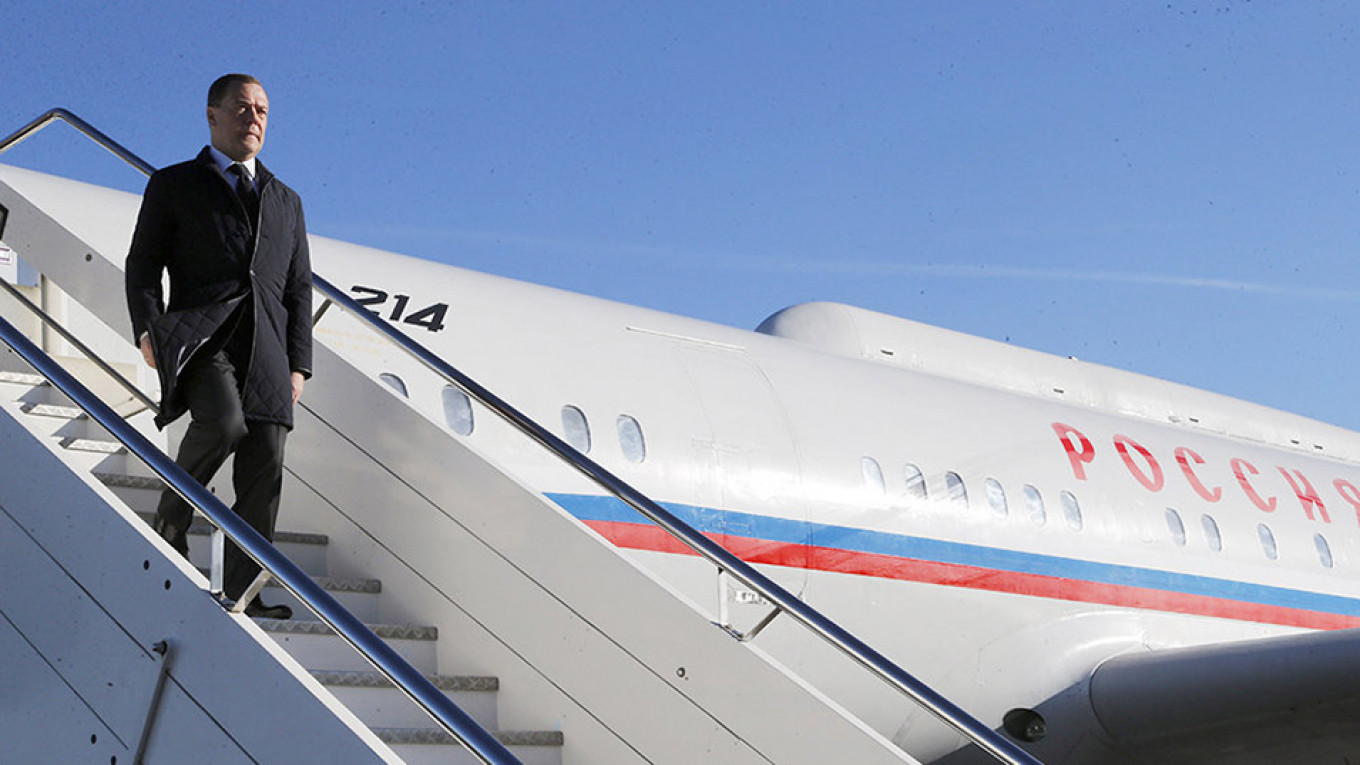
HAVANA, Oct 5 (NNN-AGENCIES) — Russian Prime Minister Dmitry Medvedev lambasted the Trump administration for trying to create a “toxic atmosphere” around Cuba, during a two-day trip to the island demonstrating Russia’s support for its Communist government.
The former Soviet Union was Cuba’s main backer for decades and Moscow has sought to renew its commercial, military and political ties with the island in recent years. The effort is part of Russia’s broader strategy to expand its presence in Latin America as a counterweight to China and the United States.
While Russia’s support for Cuba is insignificant compared to the role the Soviet Union once played, it is still welcome as the island’s economy is suffering from a tightening of the decades-old U.S. trade embargo and a steep decline in Venezuelan aid.
Medvedev’s visit — the highest profile Russian tour since that of President Vladimir Putin in 2014 — is also symbolically important, showing Cuba still has powerful allies that will help it resist U.S. pressure.
“(The U.S.) desire to create a toxic atmosphere around cooperation with the island, to scare off investors and create an energetic blockade is obvious,” Medvedev told reporters after holding official talks with Cuban President Miguel Diaz-Canel and agreeing to strengthen strategic cooperation.
“But Cuba’s experience resisting the blockade for nearly 60 years shows that this policy will fail.”
Medvedev and Diaz-Canel signed a series of modest commercial deals on Thursday in the infrastructure, medical and industrial sectors, while the latter confirmed he would travel to meet with Putin at the end of October in Moscow, a month after Maduro.
Throughout the Cold War, Moscow propped up Fidel Castro’s revolutionary government, providing it with billions of dollars worth of cheap grain, machinery and other goods. Those subsidies disappeared with the 1991 collapse of the Soviet Union and trade plunged.
Relations got a boost once more in 2014 when Russia forgave 90% of Cuba’s $35 billion Soviet-era debt and started providing export financing to Russian companies looking to sell to the cash-strapped island.
That has become increasingly important as Western commercial financing is drying up due to growing U.S. hostility.
Russian companies have signed various modest, multi-million dollar deals with Cuba in recent years to upgrade its rickety industrial sector and infrastructure.
Medvedev and Diaz-Canel on Thursday signed deals for Russia to finance projects to maintain the airplanes in Cuba’s fleet produced by Russia and the upgrade of a metallurgic factory. Those deals are worth around $23 million and $37 million, according to the Russian Export Center.
Medvedev and Diaz-Canel signed other deals on upgrading Cuba’s railways, cooperating more in science and technology and creating an irradiation center on the island. The countries did not release details on these agreements.
Russian exports to Cuba more than doubled in 2017 to $414 million and rose to $440 million last year, according to official Cuban data. While that remains less than a third of Spanish, Chinese or Venezuelan exports to Cuba, it looks set to continue rising.
Russian exports include hundreds of cars and minibusses as well as dozens of locomotives that have helped Cuba battle a severe shortage of public transport.
Later on Thursday Medvedev visited Havana’s Capitol building, the golden dome of which has been restored with Russian financing.
Meanwhile, a batch of eight Russian locomotives arrived in Cuba on Wednesday, one day before Russian Prime Minister Dmitri Medvedev’s two-day official visit to the country.
According to the Railways Union of Cuba (UFC), the new machines will join the rail service in the central and eastern provinces of the Caribbean country.
Rolando Navarro, deputy director of the UFC, said the shipment responds to a contract signed last January with the Russian locomotives manufacturer Sinara, which establishes an acquisition of 75 machines in the next five years, 15 every year.
The new acquisition for the rail sector is expected to help alleviate the difficulties in interprovincial transport caused by fuel deficit and shortage of spare parts for maintenance in the island country. — NNN-AGENCIES
